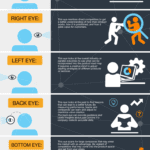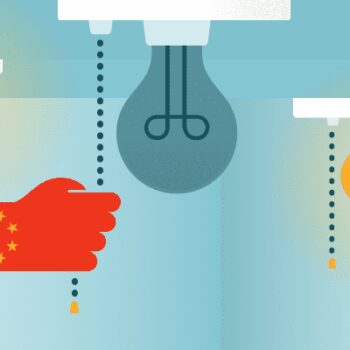The Asian Entrepreneur speaks with Ryan Rogowski, founder of WayGo, an instant, visual, mobile translator. Ryan is the creator and CEO of Waygo, an instant visual translation service. Recently named Singapore’s 30 under 30 he lead Waygo to win the 2013 Echelon award. He was recently a speaker at the 2013 Machine Learning Conference as well as China’s largest mobile conference, the Global Mobile Internet Conference (GMIC). He is an avid traveler with over 22 countries under his belt and he once ate 10 warheads simultaneously at the age of 9.
Before Waygo, Ryan worked in Beijing at Thinknao while learning Chinese. He co-created two games in the App Store: Wordlands and Quoth. In addition to software, Ryan also worked on a hardware side-project Tabber that has been featured in TechCrunch, engadget, Gizmodo, ABC News and MTVHive. Ryan hails from Naperville, IL and received a degree in electrical engineering and linguistics from the University of Illinois at Urbana-Champaign. Having passed the new HSK 5 fluency test, Ryan speaks Mandarin and has found a way to combine his love for languages and tech into a full-time job.
Ryan started Waygo after living in China and only ordering Kung Pow Chicken because he didn’t understand anything else. When he’s not visiting Asia or working in San Francisco, Ryan enjoys snowboarding, motorcycles, and backpacking.
Changing the way people learn languages
Waygo is a visual translation service that changes the way tourists, language learners and business travelers experience new countires and their respective language. Derived from the Chinese pinyin “wài guó”, or foreign country, Waygo uses a combination of optical character recognition and a translation piece to translate foreign text into English. The app sees images, finds relevant text and creates sensible phrases by simply holding the phone over the foreign text. Waygo instantly translates and does not require an Internet connection to operate. More languages are in development and coming soon.
Difficulty in learning Chinese
The idea for Waygo came about two years ago when Ryan was working in China building mobile games. He was in the process of learning Chinese and found it extremely difficult, especially for someone used to romance languages. Try reading 宫爆鸡丁! If only there were a tool that he could look up characters by simply pointing a phone camera at the text, my–and many others–lives would become much easier. At first the idea was an educational tool, but eventually it grew in Ryan’s head that this could help any traveller in any country see with new eyes. The team decided to first focus on China and the East Asian market because that’s where the problem seemed the most intimidating! Their roots have provided a solid foundation and they are excited for what they have in the works–improvements and future app versions.
The ups and the downs
Managing Waygo has been a dream come true. It is rare to be able to combine all ones passions into one job that you get to work on every day. I’ve been fortunate to have an amazing team join me who is equally passionate about changing how the world experiences language barriers. It isn’t all daisies and roses though, as running a startup comes with an equally and sometimes overwhelming amount of stress. We’ve gone through intimidating challenges like struggling to get a work visa, running out of money, and product failures.
It started as an idea, then a prototype, then a team of 3 engineers cranking away at the technology until we finally had a first beta app. WayGo went through many ups and downs like running out of money and the product not functioning correctly. One of the hardest parts of getting started is making the leap from part-time to full-time. WayGo were lucky to have some early investors support in making that jump, but looking back it is one of the most intimidating and self-fulfilling parts.
The initial reaction to the service was actually quite receptive. The hard part was getting the service to the point where it actually did what we said it should. Waygo solves quite a challenging technical problem.
The industry and competition
WayGo has some competitive products in translation. There are giants out there like Google Translate who offer free translation, but don’t take a targeted approach like Waygo. Our focus is on building a great user experience that really solves the language barrier in an innovative way. The translation industry is a dynamic industry with many facets. When a person thinks of translation, it could mean one of many types. These types range from in-person translators, voice translators, online text translators, and more. There are many opportunities to improve the lives of travelers by leveraging translation.
Waygo’s unique offering
Waygo are part of a new type of translation that uses the camera and integrates computer vision with translation. We have managed to stay relevant by creating a product in a new category and building awareness about the potential of our technology. Waygo aims to be the best mobile translation service on the market for every language in the world.
Lessons learnt
Many mistakes along the way, most of these mistakes have helped us learn and become more successful later down the line. The one mistake we made that I wish we would have realized earlier was in using analytics to improve our product. Initially we didn’t pay much attention to app analytics, but we have found by watching the right events, we can drastically improve our product for our users.
Asia, potential growth opportunity
There is plenty of potential to build a successful startup in Asia. Asia has some challenges that can make it more challenging such as less available venture capital and a culture geared towards conservative career paths. On the other hand, Asia has many booming markets from China to Southeast Asia that are ripe for innovation.
Key Principles
Respect is extremely important. Not everyone has the right answers and it’s important that everyone’s ideas are heard and that building our company is a collaboration and not a dictatorship.
The Definition of Success
When all people have no fear of language barriers and can feel comfortable traveling anywhere and experiencing any new culture, I believe we will have accomplished our goal. Persistence is a necessity. You will go through many failures so it’s important to remember your vision and always learn from your mistakes. I like to keep my goals on the background image of my phone screen so I see them every day all the time.
If you are a beginning entrepreneur, go make friends with a fellow entrepreneur who knows a little more than you.
Website: http://www.waygoapp.com/
Facebook: https://www.facebook.com/WaygoApp
Twitter: https://twitter.com/WaygoApp































